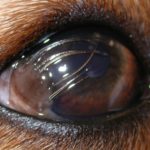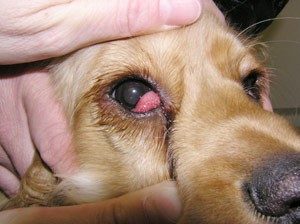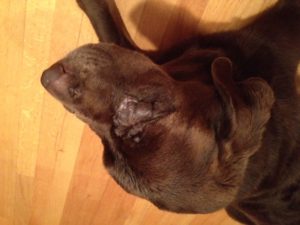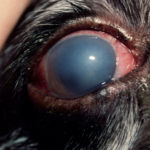Introduction
The eye is the most vulnerable organ of this breed and can be damaged very easily.
It is very hard to discover a certain eye disease in your dog; that is why you should be very attentive when you are checking your pet for any kind of illnesses. If you have noticed any sign of inflammation, you should immediately visit a veterinarian.
Symptoms of Eye Problems
Among the most apparent signs of eye diseases specialists point out the following ones:
- Profuse discharge from the eyes of a dog that can be white or greenish.
- Reddening of mucous membranes of eyelids.
- Narrowing of your dog’s lids.
- Eye itching.
- Exposure of nictitant membrane.
The Main Eye Diseases of Labradors
The eye is the weakest point almost in all dogs’ bodies. That is why there are a lot of eye diseases that can appear because of infection or insufficient health care from the owners:
- conjunctivitis;
- keratitis;
- cataract;
- glaucoma;
- retinal detachment;
- ectropion of eyelids;
- ectropion of nictitant membrane;
- adenoma of nictitant membrane.
However, all these diseases are not so widespread, except cataract and retinal atrophy. The two following paragraphs will concern the symptoms of these two diseases.
Cataract
The phenomenon of lenticular opacity is called cataract. This disease can appear because of genetic or external factors. It can develop in one eye or in both eyes. The origins of cataract can be found by specialists by their form, size, location, and the age of the sick animal. If the disease develops very fast, the dog can become blind. In the opposite case (if cataract does not progress) usually there are no complications, and sometimes the diseases passes without any surgical interventions.
Progressive Retinal Atrophy (PRA)
This disease usually affects both eyes of the dog and it leads very often to complete blindness. Mature animals are more likely to suffer from it, and the symptoms of PRA can be latent for four or seven years. However, if atrophy progresses very slowly, many sick dogs can adapt to it.
The causes of this disease are usually genetic. Sadly, this illness is incurable; that is why you should pay special attention to the certificates of your pet’s parents in order to avoid taking a dog predisposed to PRA.













